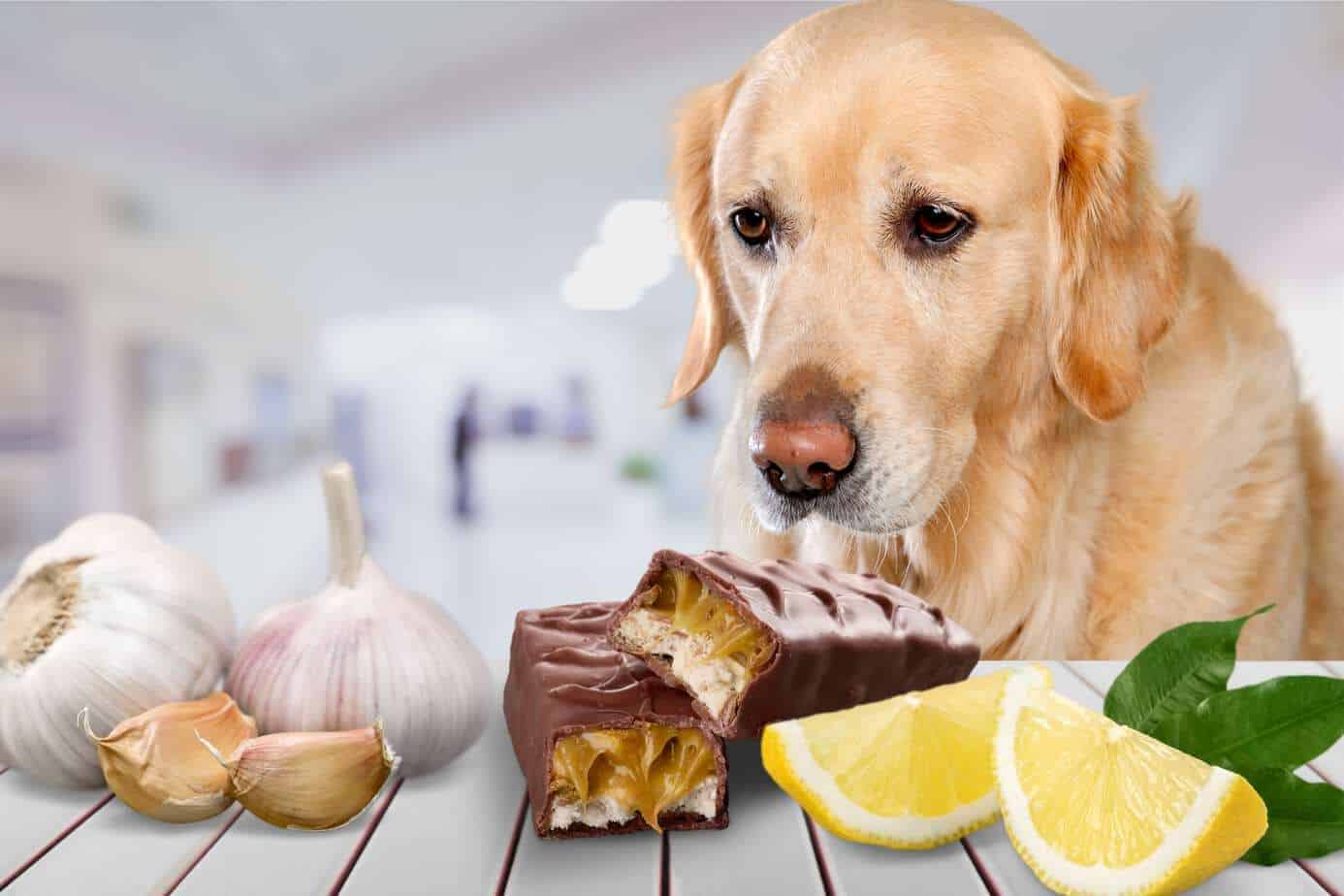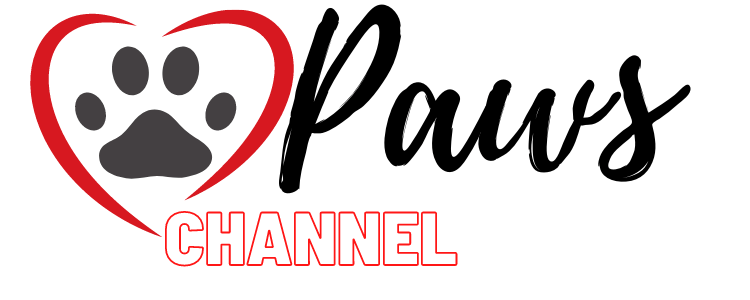Dogs are known for the big eyes they get when foraging for food. But think twice before giving in, as it can be very dangerous to offer your dog leftovers. A dog’s digestive system is different from that of humans, which means that foods that are perfectly healthy for you can be toxic to your dog. In this guide, we list the most common foods, plants, and household products that can be toxic to your pet. Some of the items on this list might surprise you!
Foods that should not be given to dogs
Whether or not you want to occasionally offer human food to your dog is up to you. In the wild, dogs eat a wide variety of foods, so you can offer them something other than kibble if you wish. On the other hand, there are a lot of foods that you should avoid giving your dog, even if he is staring at you in a very adorable way. We’ve gathered the various foods and substances to avoid by categories below, to give you a complete overview of what foods are dangerous for your dog.
Fruits and vegetables
Some fruits and vegetables are great as an occasional treat for dogs. However, even these safe foods can pose a choking hazard if served in too large pieces. Always offer your dog fruit and vegetables cut into small pieces and keep an eye on them when they eat them. Here are the fruits and vegetables to avoid:
- Raisins
- Sultana raisins
- Grapes
- Onions
- Garlic
- Some kinds of wild mushrooms
Onion and garlic are especially important to watch out for, as they are common seasonings in dishes that we prepare. Sometimes they can even be cooked in such a way that they become imperceptible in the food.
Other fruits and vegetables are poisonous in large quantities. Here they are:
- Rhubarb (mainly leaves)
- Potato leaves and stems
- Tomato leaves and stems
Also, consider removing seeds from apples and kernels from cherries, apricots, and peaches before offering these fruits to your dog, as they can present a choking hazard and cause intestinal blockages.
Nuts
Some nuts are edible for dogs, but walnuts and macadamia nuts are toxic to them. Macadamia nuts in particular can cause weakness, vomiting, and hypothermia in dogs. Keep an eye out for cooked foods that may contain nuts or nut flour.
Chocolate
Of all the foods that are harmful to dogs, chocolate is usually the one that most dog owners are already familiar with. Chocolate is toxic to dogs, even in small amounts, because of the theobromine in it. Dogs that eat chocolate may experience diarrhea and vomiting . Chocolate poisoning can be fatal in dogs, and the risk of death is even higher with dark chocolate and baking chocolate due to the high percentage of theobromine they contain. If you suspect your dog has ingested chocolate, you should take him to a vet as soon as possible.
Drinks
Dogs are perhaps less thought of in offering drinks than food for humans, and that’s arguably just as well: many common drinks can be toxic to them. Coffee, tea, and alcohol are all substances that you should avoid giving your dog, both in liquid form and as an ingredient in other foods.
Other dangerous foods for dogs

Other foods that are harmful to dogs include bread dough and raw meat and eggs. Although raw diets for dogs have grown in popularity in recent years, the American Veterinary Medical Association (AVMA) and the Centers for Disease Control and Prevention (CDC) in the United States have spoken out against them.
Xylitol is another ingredient in many foods that can be dangerous for your dog. It is a common artificial sweetener that is often found in products carrying the claim “sugar free”, although it can also be present in foods containing sugar. Xylitol can cause liver failure in dogs and is extremely toxic to them.
Household items harmful to dogs
Food isn’t the only substance in your home that could pose a danger to your dog. From the product you use to clean your kitchen table to your favorite houseplant, your home is full of potentially harmful items. We have put together a list of common substances that could be in your home and be harmful to your dog, but keep in mind that it is not exhaustive. You can find more information on this on the Veterinary Poisons Information Service (VPIS) website, which is full of useful information. When in doubt, keep chemicals and plants away from your pets.
Chemical products

IMG SRC: PIXABAY.COM BY Rachel Claire
- Cleaning products
- Pest control products
- Medicines
- Household products
- Car care products
- Flea and tick products
- Fertilizers, herbicides and insecticides
- Pollutants
Plants
- Aloe
- Apple (seeds)
- Apricot (kernel)
- Meadow saffron
- Cherry (kernel and withered leaves)
- Daffodil
- Easter lily
- Spearhead philodendron
- Common ivy, poison ivy (poison ivy), golden pothos and other types of ivy
- Foxglove
- Geranium
- Marijuana
- Narcissus
- Oleander
- Oriental lily
- Peach (kernel and withered leaves)
- Primrose
- Rhododendron
- Tomato plant (green fruits, stems and leaves)
- If
- Amaryllis
- Azalea
- Bird of Paradise
- Clematis
- Cyclamen
- Eucalyptus
- Rubber
- Lily of the valley
- Mistletoe
- Solanaceae
- Onion
- Moon flower
- Poinsettia (low toxicity)
- Philodendron monstera
- Tiger lily
- Weeping fig tree
If you suspect your dog has consumed something poisonous, it is important to see a veterinarian immediately. If possible, take whatever your dog has eaten, such as a plant or the wrapper for a chocolate bar, so your vet will know exactly what substance he is dealing with.

